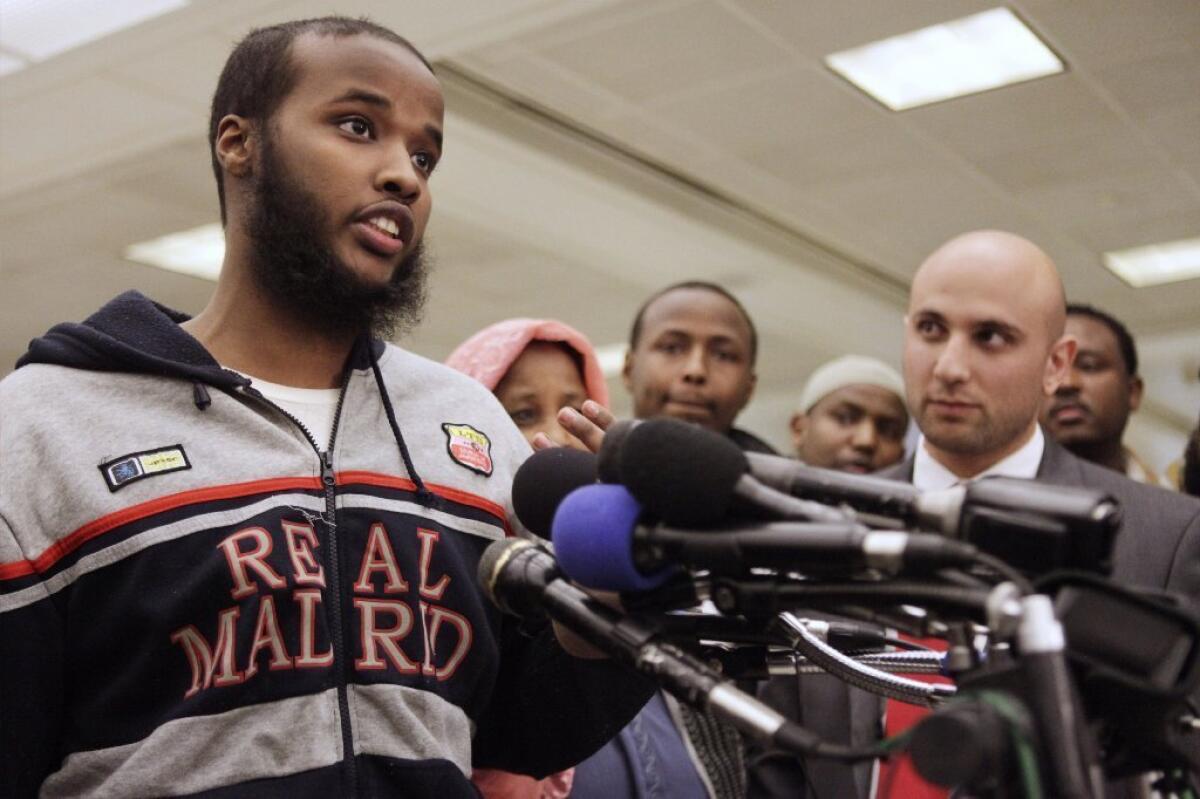Judges are pushing back against the narrowing of civil liberties

A raft of recent court rulings yields encouraging, if preliminary and scattered, signs that the judiciary is getting fed up with efforts to narrow voting rights and other civil liberties and to undermine the Affordable Care Act. Some of these rulings come from judges with unassailable conservative credentials.
Here’s a brief rundown.
-- Judges in Missouri and Washington, D.C., rejected attacks on the Affordable Care Act. In Missouri, Judge Ortrie D. Smith last week suspended parts of a Missouri law aimed at interfering with federal “navigators” -- people empowered under the ACA to help potential insurance customers find the best individual policies for themselves and to sign up for coverage. The state law required navigators to obtain state licenses as insurance agents. Smith ruled that the requirement conflicted with the federal law, and thus had to yield. The state says it will appeal. A U.S. judge in Tennessee made a similar ruling in October on that state’s anti-navigator law.
In Washington, U.S. District Judge Paul Friedman on Jan. 15 threw out a challenge to Obamacare’s premium subsidies, which make insurance purchased through the act’s insurance exchanges affordable for low income individuals and families. The plaintiffs claimed that the ACA didn’t provide for subsidies for policies bought through the federal insurance exchange, which covers 36 states that refused to set up their own exchanges and let the feds handle the task for them.
One plaintiff is David Klemencic, a West Virginia business owner who asserted that he’ll earn $20,000 this year, and if not for the subsidy he’d be exempt from buying any insurance. Because of the subsidy, however, he’ll be forced to buy a policy, which will cost him $20 a year and which he says offends his ideology. (Yes, you read that right.)
The plaintiffs said Congress left out subsidies for the federal exchange because it wanted to encourage states to set up their own. The judge didn’t buy it. The legislative history of the act shows clearly that Congress intended to use any means possible to make insurance affordable for “all Americans” (his emphasis).
-- Judges in Texas and Pennsylvania questioned efforts to constrain voting rights. In Texas, a three-judge panel last September gave the Department of Justice permission to intervene in a state redistricting case. The DOJ contends the state’s 2011 redistricting was meant to reduce minority voting power, and succeeded in doing so. The government’s previous formula for determining when a state violates the Voting Rights Act was invalidated by the Supreme Court in June, but this ruling allows it to return with alternative arguments.
More recently, Judge Bernard McGinley of Pennsylvania state court struck down the state’s 2012 voter ID law, which was passed by a Republican Legislature and signed by a Republican governor. They claimed the law was necessary to combat voter fraud; McGinley found there was no evidence that voter fraud was a problem in Pennsylvania. He ruled that the law could disenfranchise hundreds of thousands of residents who did not have photo IDs as the law required.
-- Two recent federal court rulings question the government’s no-fly list. On Jan. 14, San Francisco federal Judge William Alsup ordered the government to disclose to Rahinah Ibrahim, a Malaysian citizen and Stanford student, “whether she is on the No Fly List and to ‘cleanse and/or correct its lists’ of mistaken information about her,” as the ACLU described his ruling. Ibrahim says she was placed on the list by mistake. Alsup found that the process for fliers to get their names expunged was so laborious to be unconstitutional.
A week later, U.S. District Judge Anthony Trenga rejected a government motion to dismiss a case brought by Gulet Mohamed, a U.S. citizen who says he was blocked from boarding a plane home from Kuwait because he appeared on the no-fly list, and that he was subsequently beaten in a Kuwait prison.
Trenga observed that restriction from flying is no small imposition on Americans’ rights -- it narrows the geographical circle in which they can live their lives, restrains their freedom of association and their employment opportunities, and labels them disloyal citizens “capable of, and disposed toward committing, war crimes.” It’s “life defining and life restricting.” The government’s handling of the no-fly list, which isn’t disclosed to affected persons who consequently have no way of challenging their inclusion in advance, isn’t up to snuff, the judge suggested.
These are isolated rulings and all subject to appeal. And there are countervailing opinions from other courts on almost all these issues. But taken together, they offer encouragement to those who think the political pushback against the Affordable Care Act and the narrowing of voting rights and other civil rights have gotten out of hand.
More to Read
Start your day right
Sign up for Essential California for news, features and recommendations from the L.A. Times and beyond in your inbox six days a week.
You may occasionally receive promotional content from the Los Angeles Times.







